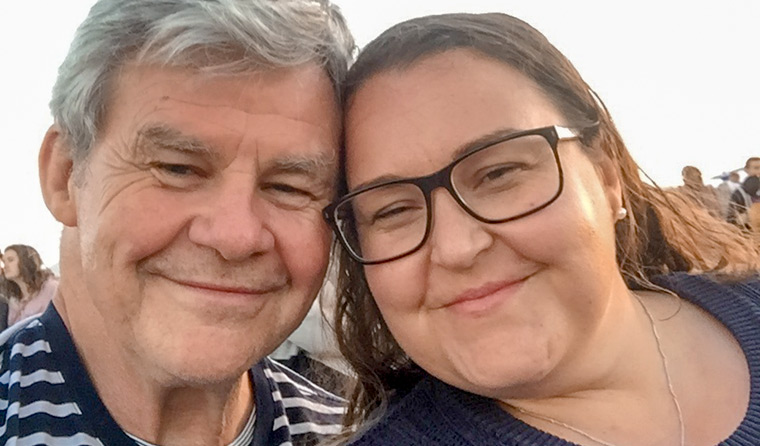News
Fostering connections to overcome loneliness
More and more Australians are feeling lonely, with some experts warning of a loneliness epidemic. What can be done?
 Lonely in a crowd. The 2018 Australian loneliness report found ‘we can be surrounded by others but still feel lonely’.
Lonely in a crowd. The 2018 Australian loneliness report found ‘we can be surrounded by others but still feel lonely’.
One in four Australians feels lonely, according to recent findings from the Australian Psychological Society’s (APS) 2018 Australian loneliness report.
The report describes loneliness as ‘a feeling of distress people experience when their social relations are not the way they would like’.
‘It is a personal feeling of social isolation. It is different to feeling alone – we can be surrounded by others but still feel lonely, or we can be alone but not feel lonely,’ the report states.
Dr Darra Murphy, a GP, psychotherapist and Chair of the RACGP Specific Interests Psychological Medicine network, agrees.
‘Lots of people live alone but are not necessarily lonely,’ he told newsGP.
Dr Murphy recognises the notion of the basic social unit of the ‘nuclear family’ so common today – the adult couple with their dependent children living under the one roof – as contributing to an increasing social isolation.
‘We [previously] lived in huge family groups and it’s only the last 150 years or so where we’ve got our own little house,’ Dr Murphy said.
‘These are massive social changes to consider. The average occupancy per dwelling in Australia is 1.8 people, so there’s basically less than two people per dwelling, on average. So if there’s more than two then there must be another place where there’s only one person.’
As social creatures, humans have a need to connect with others, heeding the time when large families all lived together.
The APS study also highlights Dr Murphy’s view that as times have changed and smaller households are more common, not being as connected to others can take a toll on relationships, wellbeing and overall survival.
‘I think there are huge pressures on everybody in all directions – the research on loneliness is that it’s related to depression, stress, anxiety,’ Dr Murphy said.
‘What we know is that people who live in shared accommodation do better, it’s considerably less stressful and their risk factors – such as stroke, heart attack, cancer – are improved.
‘[Being a part of] practical, everyday things, like sharing meals and being engaged in activities, is helpful.’

Dr Darra Murphy (left, with his daughter Rosaline) believes active listening can help a patient through feelings of loneliness.
Perhaps unsurprisingly, social media and online communication play a role in people’s loneliness, despite offering some advantages.
‘Social media encourages people to project themselves in a particular way, and it doesn’t necessarily establish a sense of connection or give them a sense of feeling seen or heard,’ he said.
‘It may increase their yearning to be seen and heard, but it doesn’t necessarily satisfy that.
‘I think you can get a certain amount of information in an email or text, but you get a lot more information from a conversation, you get the tone and the emotion, and if you’re face to face and getting the visual connection as well, then that’s even better.
‘[So] certain types of media like Skype, which has a visual interaction, have great potential to help overcome loneliness.’
Given the therapeutic nature of GPs’ relationship with patients, which is often over a whole lifetime and a number of generations within a family, they are well placed to identify and support patients who may be feeling lonely, according to Dr Murphy.
‘GPs are in an ideal position to [provide holistic care by] simply bearing witness to what the patient is experiencing, helping to reduce their sense of isolation and loneliness,’ he said.
‘The simple act of acknowledging, “I don’t feel well” or “I’m unhappy” is useful.’
Dr Murphy sees being an active listener as an integral part of the GP’s role. He believes this helps to establish better outcomes for patients who may be experiencing a sense of loneliness.
‘Often it’s that simple experience of being seen or being heard that reduces the sense of isolation, so you listen to the patient’s story,’ he said.
‘The act of listening is a fundamental skill in general practice, which essentially means listening in a way that gives feedback to the patient and permits them to have the experience of feeling heard or seen, or acknowledged, and that helps people feel a sense of connection.
‘Rather than refer them to a psychotherapist straight away, I’d be more interested in hearing about their journey – how they have arrived and where they’re at now.’
Providing support to patients also requires education and awareness of the available resources, Dr Murphy believes.
‘I think there’s a lot GPs can do, but it’s also important for GPs to know about the resources they can plug people into,’ he said.
‘Any kind of aged care service if they are elderly citizens, community centres, Men’s Sheds. Those public services also need to make themselves known to the GP, because GPs are often the first port of call.’
isolation loneliness mental health
newsGP weekly poll
How often do patients ask you about weight-loss medications such as semaglutide or tirzepatide?